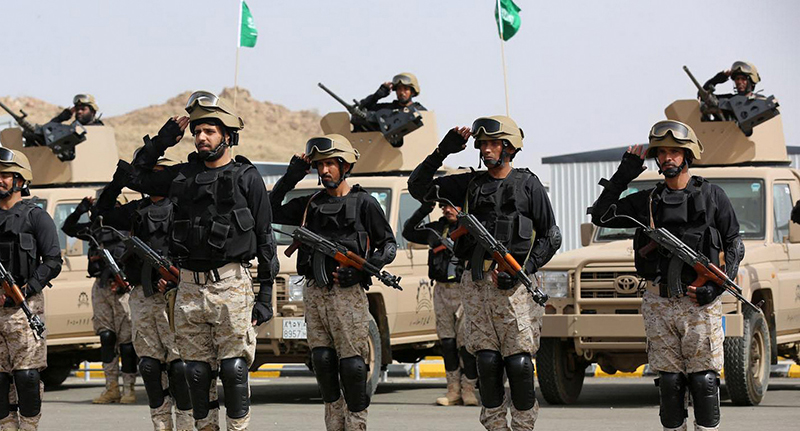Riyadh – The directives issued by Saudi Arabia’s King Salman bin Abdulaziz on Saturday were topped by establishing a National Security Center affiliated to the Royal Court.
In a Royal Order, he also appointed Mohammad bin Salih Alghfaili as an advisor for national security. Designating the name “advisor” resembles the nomenclature of the axial states, such as the United States, where the position is of high importance in the chain of command.
Security centers are very crucial in the states as they are considered an assembly of centers for strategic studies which analyze data and enhance decision making in the country.
The order said the national security advisor shall be a member of the Political and Security Affairs Council and supervisor of the Secretariat of the Council.
According to experts, national security is what the state does to maintain its unity against any threat through a variety of power projections, such as political power, diplomacy, economic power, military might, and so on.
Professor of international relations Abdul Latif al-Salimi pointed out that the challenges compel the formation of a national security center linked to the decision maker. He added that security is the basis of the policies that works on putting the national interest first and detecting risks.
Salimi considered the establishment of a national security center an indication of the new spirit that activates the strong and soft power of the kingdom.
Speaking to Asharq Al-Awsat newspaper, Salimi explained that the role of national security centers is to perform strategic analysis according to the institutional work, adding that they contribute to establishing balance and enhancing the national identity of the country internally and externally.
The decision is part of the country’s continuous attempt to reach the Vision 2030, during the economic growth reflected by the recent royal orders like the restoration of financial allowances for civil servants and military personnel that had been cut previously. This confirms the precise direction to reach strategic goals as it was preceded two years ago by the formation of two councils: Political and Security Affairs Council chaired by Crown Prince Mohammad Bin Nayef, and Economic Affairs and Development Council chaired by deputy Crown Prince Mohammed Bin Salman.
Amid the changes in the region, national security centers and national centers for strategic studies contribute to the determination of the policies that should be used as part of the futuristic view of these developments. This comes in accordance with a strategic balance that maintains the sovereignty of the state and its economic and social composition. It also helps in achieving nationalism in its current form which is based on linking former events with current and future possible ones through analysis, deductions, and exploration of the future.
